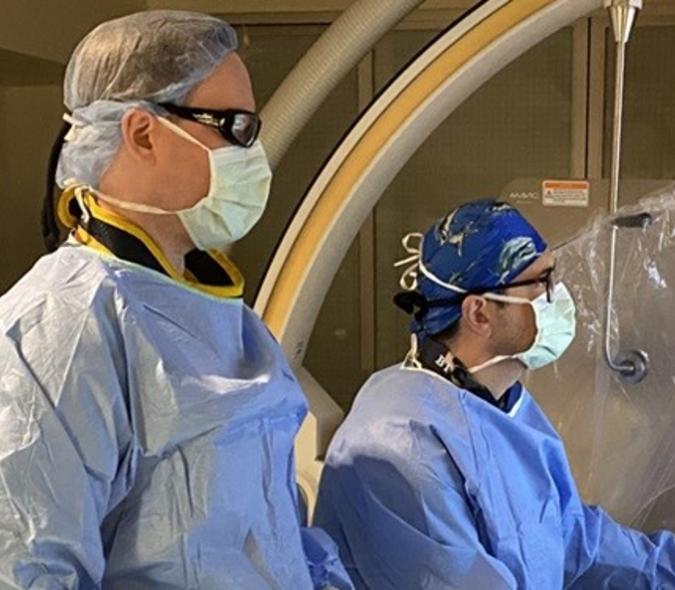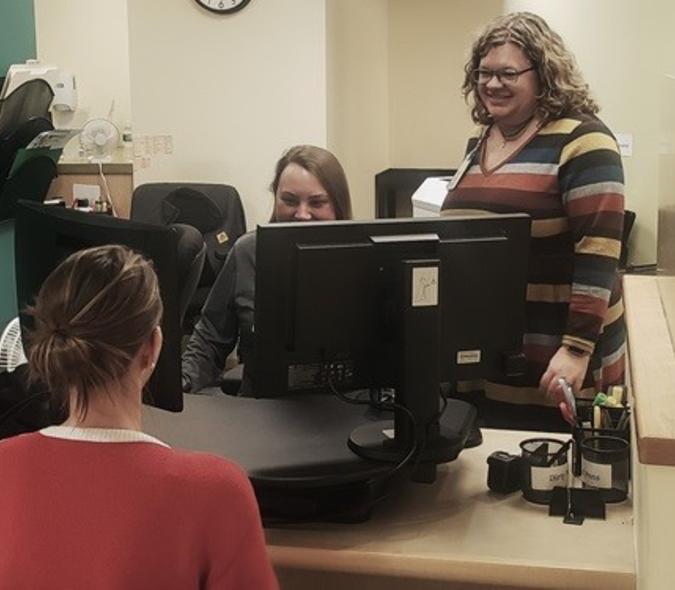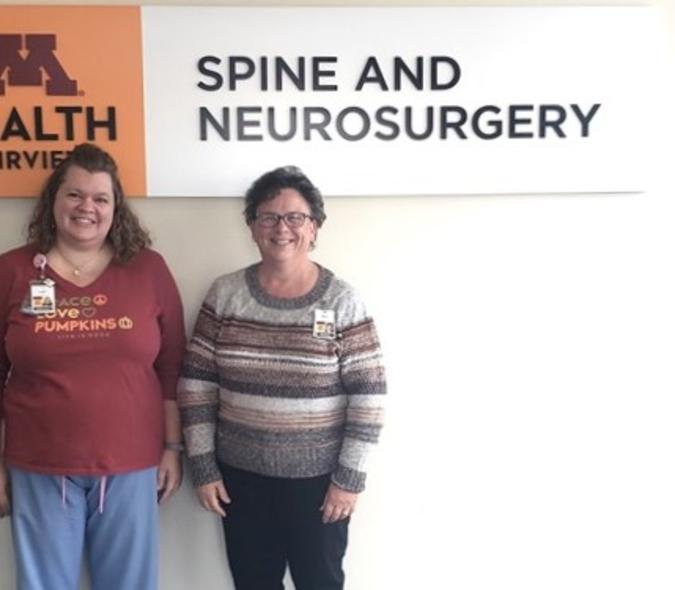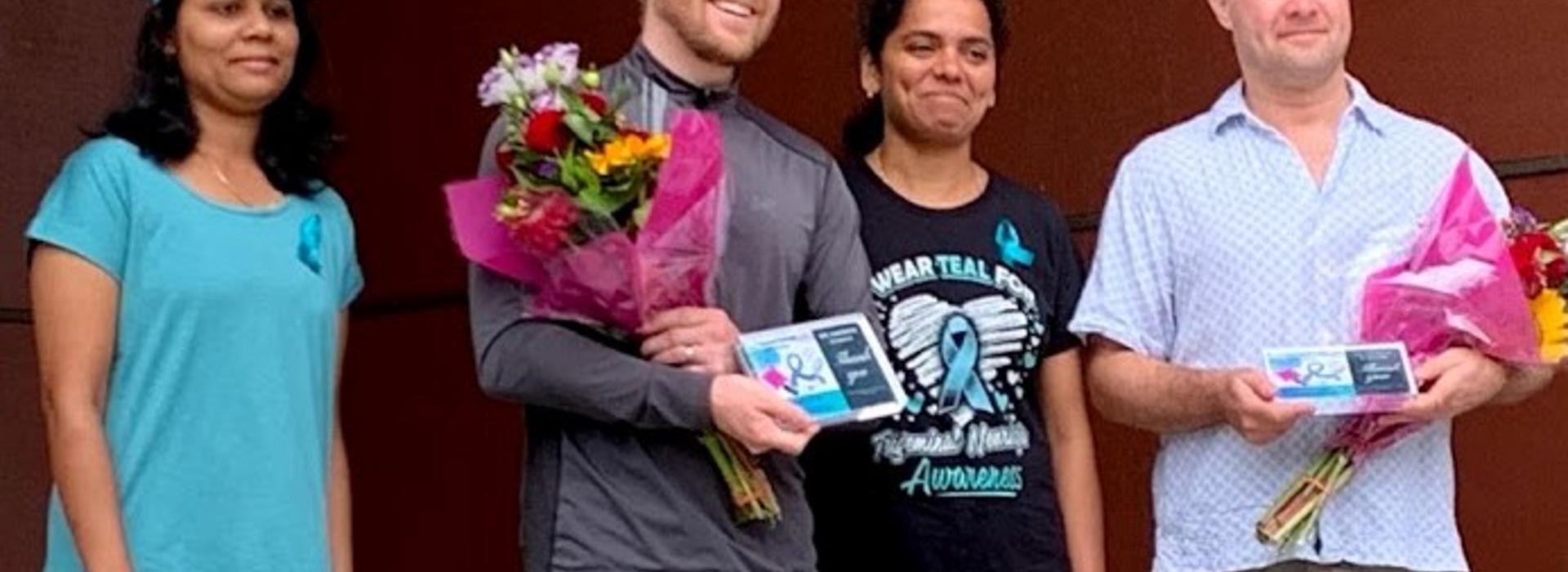
Local organizers raise community awareness about trigeminal neuralgia during a 5K walk
(Note: September is National Pain Awareness Month. This story is one example of how people with chronic pain help those around them understand and empathize with their condition.)
On August 18, 2019, Twin Cities resident Lakshmi Subramaniyan did a remarkable thing. She and a few organizers led 72 family and friends – and a couple of U of M faculty – on a 5K walk to raise awareness about trigeminal neuralgia.
Lakshmi had no other motivation than to help those around her understand what people like her go through when they have this rare, excruciatingly painful condition – often referred to as the “suicide disease.”
Diagnosed with TN two years ago, Lakshmi had a particularly bad day a few months ago and decided that she needed to do something. As a teacher, her natural inclination was to focus on education. “I thought, why don’t I set up a walk? I sent a message to several friends to see who might be interested in coming,” she said. “Right away, about 30 people responded.”
Helping raise awareness
Her friend and co-organizer, Amutha Muthusamy, thought the idea of getting people together for a walk to raise awareness about trigeminal neuralgia was a good one. “She believed it would help people around me become more empathic toward my condition,” said Lakshmi.
Trigeminal neuralgia could be the poster disease for National Pain Awareness Month. It is a chronic pain condition that affects the trigeminal nerve, which carries sensation from your face to your brain. It affects about 200,000 people a year in the United States. If you have trigeminal neuralgia, even mild stimulation of your face — such as from brushing your teeth or putting on makeup — may trigger a jolt of excruciating pain. The pain could last from several seconds to several minutes.
The condition seems to have two forms. The typical form is characterized as brief stereotypic bouts of sharp shooting intense pain within the face and/or mouth that are episodic, meaning that there are times when the person feels no pain. The atypical form of the disorder, called Type 2 or TN2, is characterized by having constant “background” pain that can be characterized as aching, burning, or stabbing of somewhat lower intensity and can occur with bouts of typical trigeminal neuralgia pain. Trigeminal neuralgia can be physically and mentally incapacitating. *
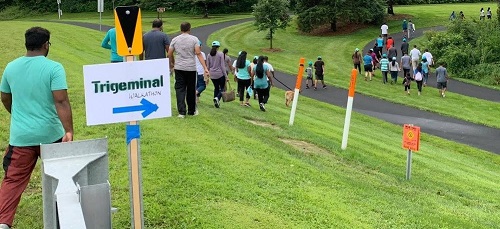
Trivia questions & more
To help explain trigeminal neuralgia to walk participants, Lakshmi encouraged her students to create trivia questions for participants to respond to, she and other organizers edited a video to help invitees see the importance of the walk, and they developed a poster explaining TN. Children of participants hosted a lemonade stand during the walk and gave the proceeds to VT Seva Minneapolis, a community service organization that helped organize the walk.
Amutha also invited neurosurgeon Andrew Grande, MD, from the U’s Facial Pain Clinic to speak during the walk. In turn, Grande invited Clinic colleague Donald Nixdorf, DDS, MS, from the School of Dentistry to participate. “It meant a lot to have them there,” said Lakshmi. “By speaking and answering questions, they increased the impact of the walk.”
Grande was happy to participate. “It was an absolute pleasure to be involved in the event,” he said. “It was exciting to see what our patients are doing in the community and how they work together to support one another.”
Condition impacts more than the sufferer
Nixdorf agreed. “It was very impressive to see the level of engagement of friends, family, and neighbors who came out for the walk,” he said. “This show of support clearly demonstrated that trigeminal neuralgia not only has a huge impact on individuals suffering from the disorder, but on the entire community as well. More work toward developing a better understanding of the condition is needed to improve the lives of those involved. This walk reminded me about why I chose an academic career and do what I do.”
Because of the rarity of their condition, trigeminal neuralgia sufferers often feel isolated. Lakshmi was no exception and found a Facebook group with which to connect. It wasn’t enough and she was glad to learn that there is a Facial Pain Support Group that meets regularly in the Twin Cities. “It’s easier for me to connect with people in person,” she said. The group’s next meeting is September 14, 2019, in the Clinics and Surgery Center on the U of M’s Minneapolis campus (909 Fulton Street SE). The featured speaker will be endodontist Brent Rundquist, DDS, who is associated with the U’s School of Dentistry. His topic will be, “Diagnosing Dental Pain.”
"We can provide emotional and mental support"
one, Amutha presented closing remarks on behalf of Lakshmi. She ended with a heartfelt plea about her own educational journey related to her friend’s painful condition. “I have learned that we can provide emotional and mental support,” she said. “Therefore, I pledge and invite you all to pledge that we will never dismiss loved ones’ symptoms and feelings, lend a listening ear, learn all about how to take care, show love and compassion and give our endless support. The sufferers don’t need our sympathy, but our empathy. May there be more strength to handle the pain, May there be more pain-free days! May there be more remission! May there be more research! May there be a cure! Thank you.”
*NIH Trigeminal Neuralgia Face Sheet
Twin Cities Facial Pain Support Group contact information: Rene Johnson, facialpainmn@gmail.com, and Mary Lou Peterson, marylou@giftofheritage.com.
